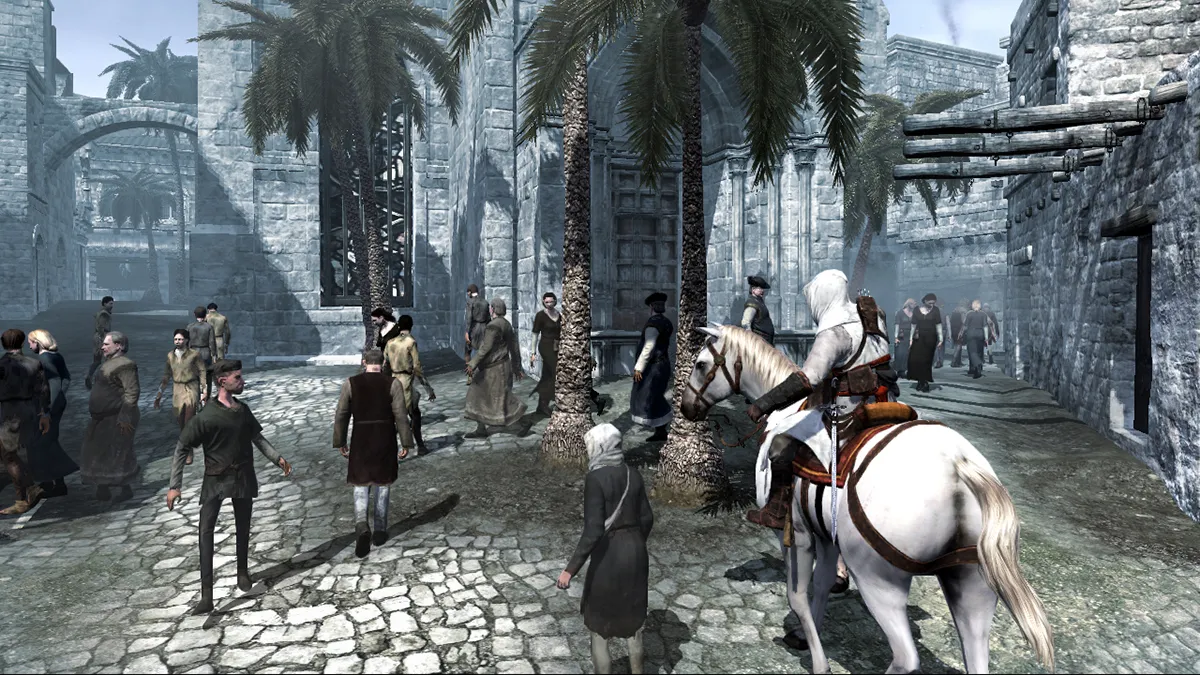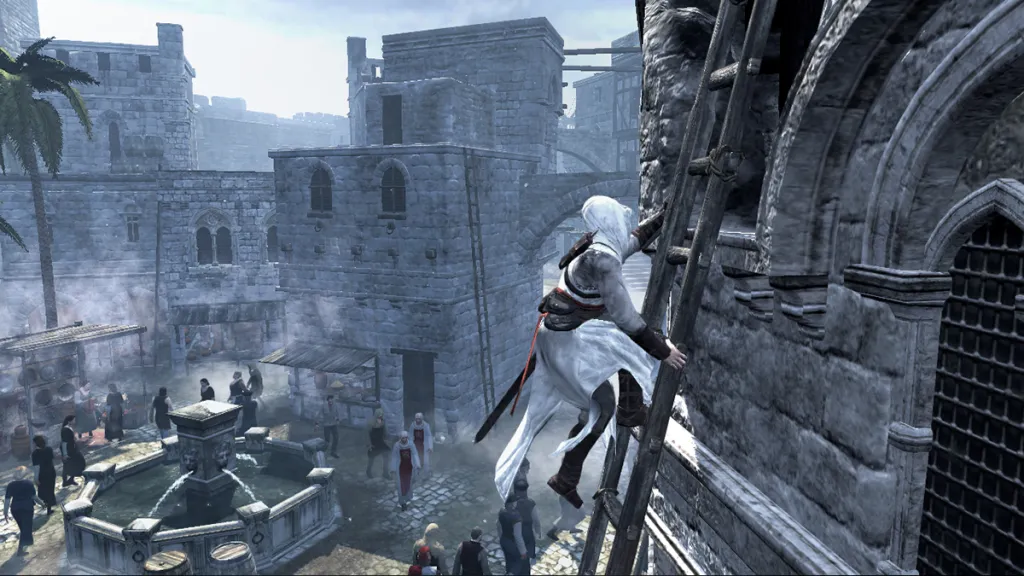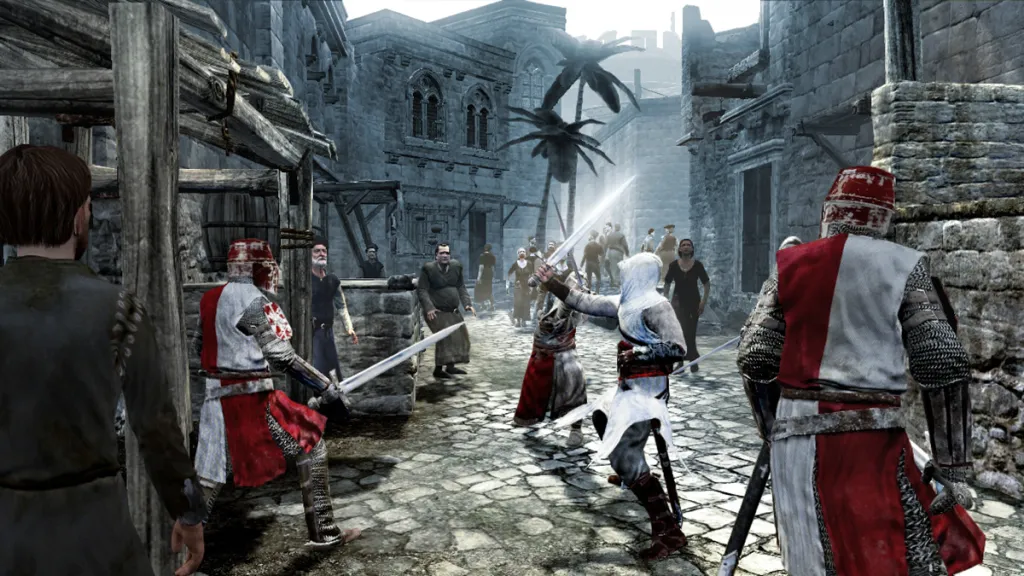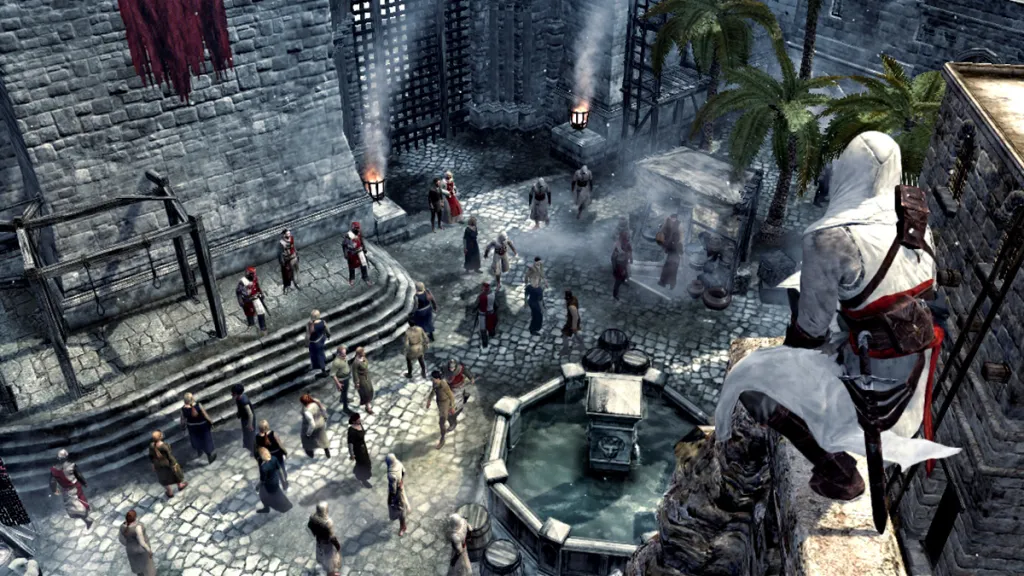Ahead of Assassin’s Creed Mirage, I’ve been replaying the original 2007 game on my trusty Steam Deck. It’s a fantastic fit for the hardware, and I’d been meaning to go back to the series’ genesis inside the Animus for a while now, especially after the last handful of AC entries embraced a full-on historical RPG identity which I personally enjoy a lot. Does it hold up? Not at all, despite the strong art direction and awesome recreation of its 12th-century locales and characters. But I’m not surprised, as I never fully vibed with it. My relationship with the first Assassin’s Creed reminds me of how I feel about Far Cry 2 (another Ubisoft blockbuster that was released only a year later): they are gorgeous games that packed impressive chunks of tech, but ultimately weren’t very fun to play.
In the case of Far Cry 2, my biggest gripes were the malaria mechanic, the regenerating outposts full of mercenaries made of kevlar with superhuman senses, and guns jamming randomly in a game that wasn’t designed like a survival FPS at all. Likewise, Assassin’s Creed presented truly stunning environments and groundbreaking parkour mechanics which supported an otherwise rather boring affair. As a meaty tech demo to show off your late-2000s hardware, Assassin’s Creed shined. Sitting down to actually play the game for two hours or more? That was (and still is) an entirely different story.
Related: Assassin’s Creed Had One of the Best Multiplayer Modes Ever
If I had to guess, the nostalgia for the first Assassin’s Creed comes from the state of saturation generated by too many gigantic open-world games released too fast. Many folks don’t care about the overarching design philosophy anymore, instantly rejecting massive odysseys the moment they hear about their size and length, something that has prompted some creatives to promise their upcoming AAA behemoths actually won’t take over your gaming time for months.
Ubisoft has been facing a very difficult situation recently between a clearly undesirable amount of cancelled/troubled projects and expensive new live service efforts failing to take off consistently in spite of some past wins in that arena. Assassin’s Creed Mirage and the upcoming 2.5D Prince of Persia platformer The Lost Crown are looking like two very needed easy wins for the publisher. Why am I confident about their chances? Because they’re straight-up, no-BS classical single-player releases. The reduced price tags will surely help, too.
Returning to AC1 reminds me that Ubisoft – and most of the industry – once was all about this type of releases. That didn’t translate into instant success with critics and players though. Altaïr Ibn-La’Ahad’s first adventure successfully kickstarted a new promising action-adventure series, plus it was a technical marvel almost everyone wanted to experience for themselves. However, its repetitive structure and limited counter-based combat system – which would start to shine later in Batman: Arkham Asylum and Assassin’s Creed 2 – brought the experience down for some players.
The dull combat encounters wouldn’t be much of a problem if everything else was as creative and fun as the Prince of Persia games that preceded Assassin’s Creed, but the reality of Altaïr’s quest to take down the Templars and uncover the truth at the center of a larger conspiracy – which also affects his awfully boring descendant Desmond Miles in the present day – is that it’s mostly about traveling to a new city, collecting info in two or three different ways, stalking the assassination target while we’re shown how cartoonishly evil they are, stabbing them, and running off. Rinse and repeat.
That might sound like a good summary of at least half the Assassin’s Creed series, but in the case of the first game, it’s quite literally what you have to do for its entire length (except for slow-paced expository dialogues during which you can just walk around). Once the honeymoon phase was over, it was kind of a slog to play. 16 years later (I’m feeling incredibly old right now), those feelings are pretty much the same, and not even bite-sized play sessions on the Steam Deck can alleviate them.
Credit where credit’s due: Assassin’s Creed still looks and sounds amazing by 2007 standards – something I can also say about other modern classics such as BioShock – mostly because there’s a texture and unique artistic vibe to its world that many of the following installments didn’t quite capture. The locations are gritty and the complete opposite of lively despite their crowded streets, completely selling the harshness of the Holy Land during the Third Crusade. Also, the game never feels as tedious as the 2016 movie, so that’s another win.
Related: Assassin’s Creed Mirage Is One of the Best Ubisoft Games I’ve Played in Years
Going into Mirage, I’m calmer now that both developers and press previews have confirmed it’s more of a balancing act between the original game’s DNA and all the positive changes introduced by the more recent entries. The aesthetics certainly seem more sanitized, but I believe the lush setting of 9th-century Baghdad deserves some joy and colors as much as Origins’ beautiful recreation of Ptolemaic-period Egypt.
I guess the logic conclusion to all that is I wish Ubisoft would keep pushing in the direction of recovering amicable single-player experiences that don’t require as much time from players as a personal relationship. But I don’t want to see them repeating mistakes tied to outdated design philosophies and tech limitations just because we dislike much of what’s currently going down in the AAA space.
If you’re looking for more on the game, check out when Assassin’s Creed Mirage takes place in the franchise’s timeline.









Published: Oct 3, 2023 12:00 pm